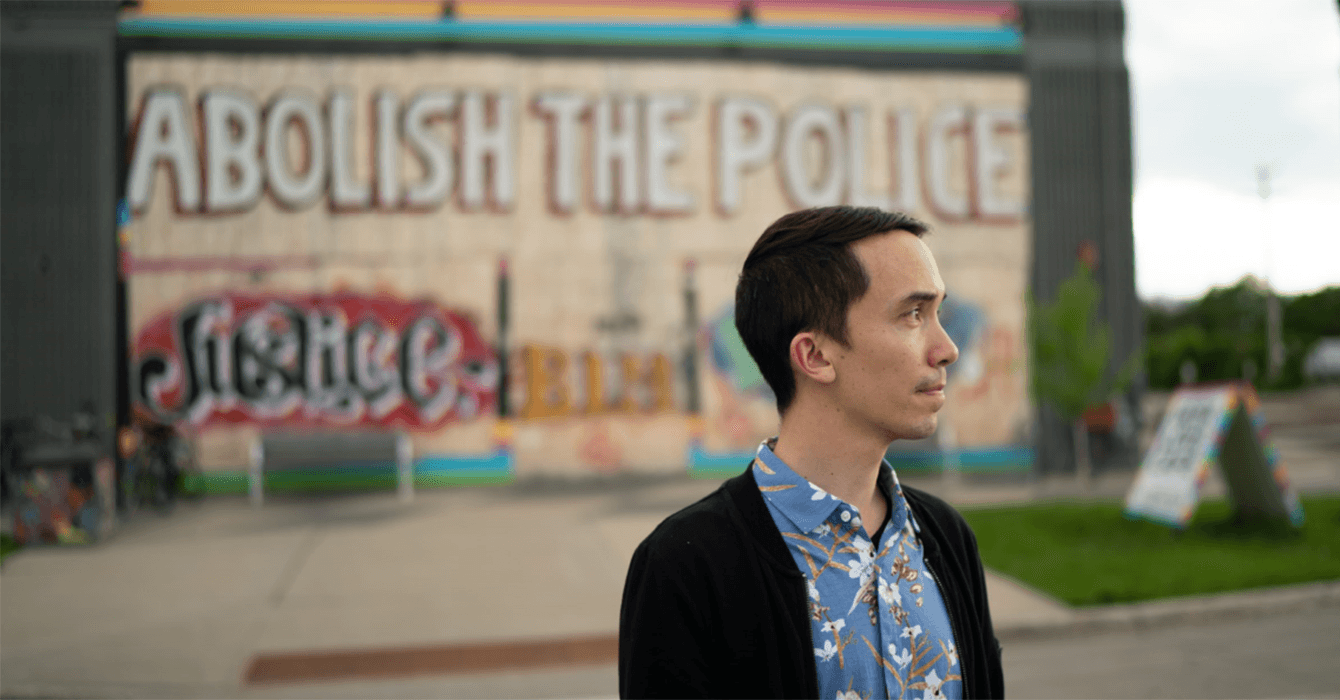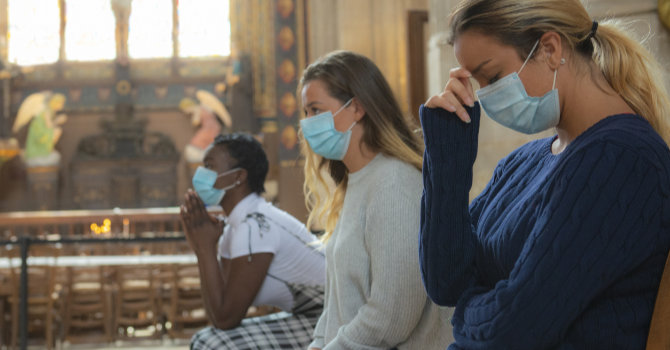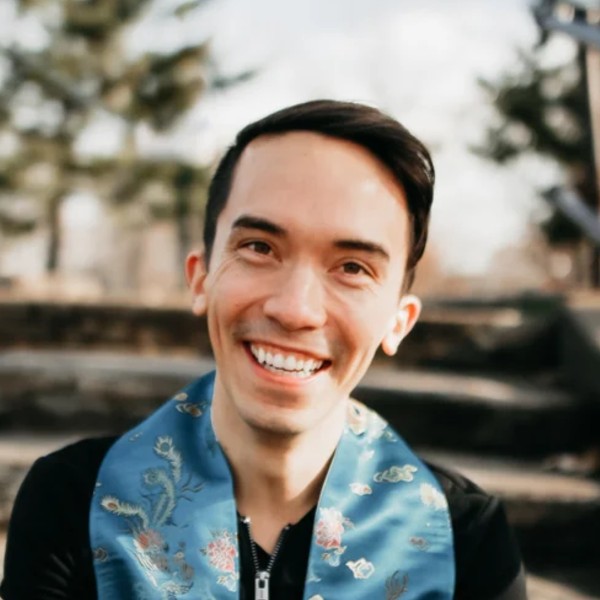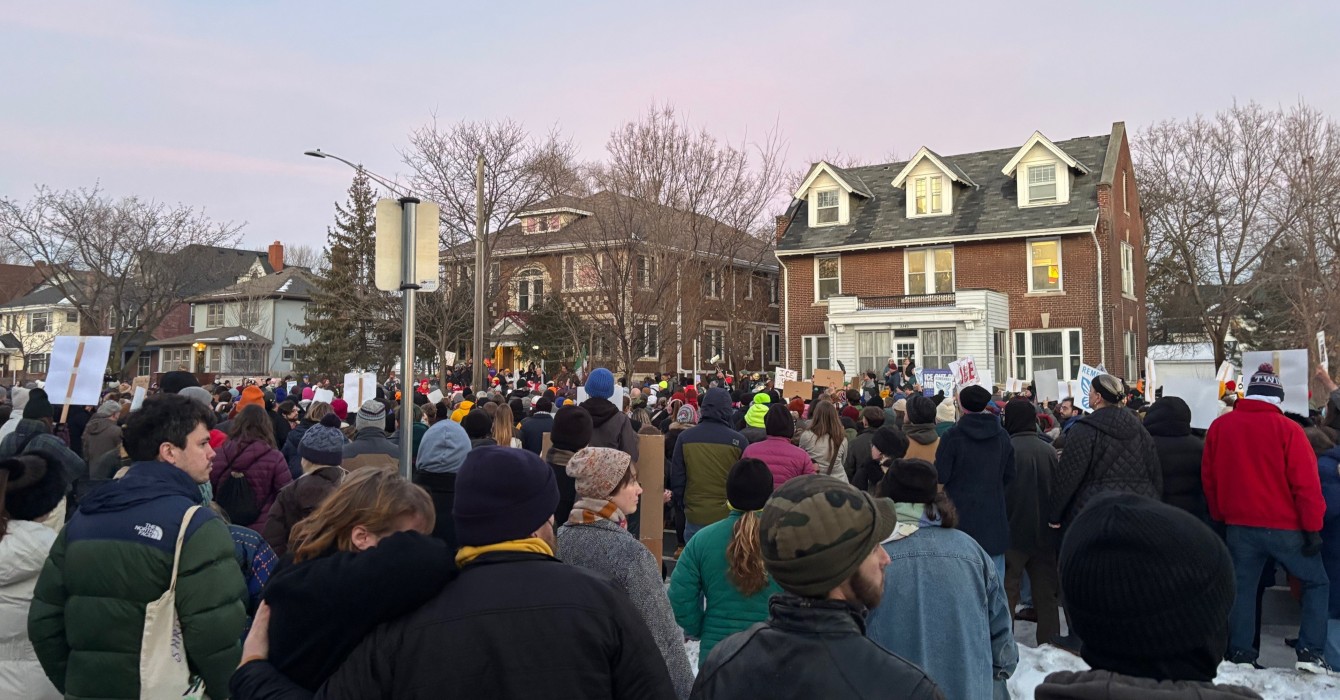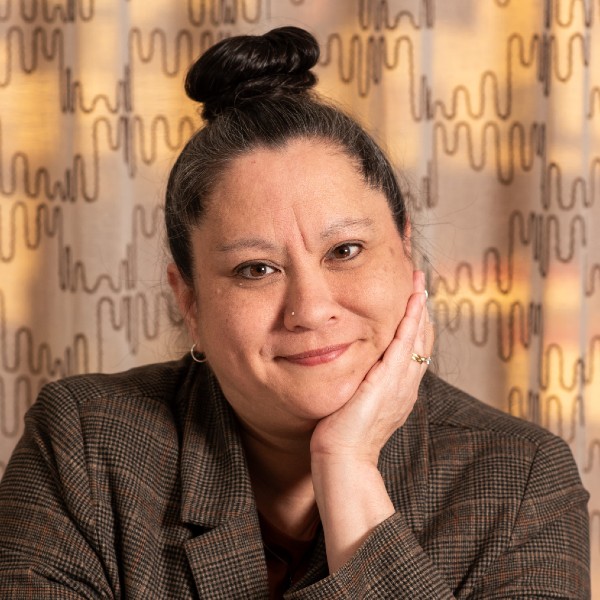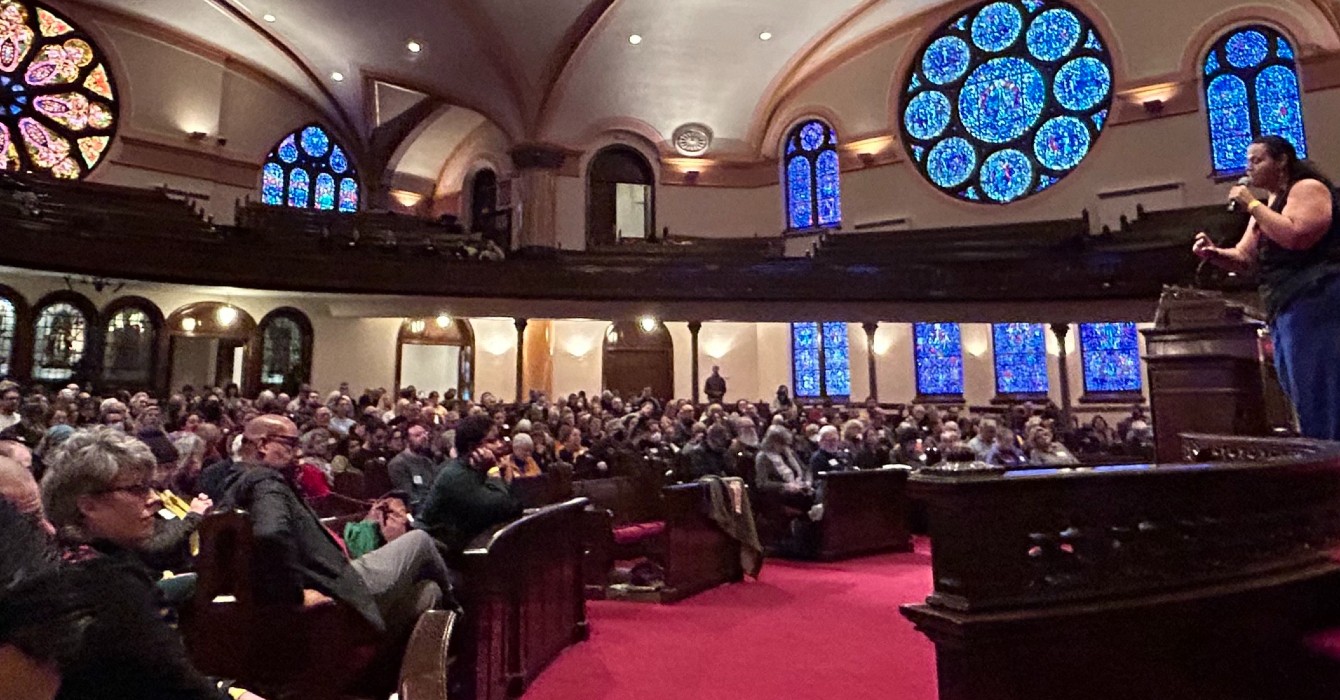Daily meetings still occur at George Floyd Square. The space at the intersection of 38th Street and Chicago Avenue in Minneapolis continues to hold significance for people in the city, even after it reopened to traffic in 2021.
“There’s still a presence there,” the Rev. Dana Neuhauser said. Neuhauser and the Rev. Tyler Sit of New City Church have been present since the start of the protests, helping lead vigils and being part of a community seeking to heal, process the events and push for justice. The United Methodist Church is within walking distance of the intersection where George Floyd was murdered by former police officer Derek Chauvin May 25, 2020.
As Neuhauser and Sit reflect on the five-year anniversary of George Floyd’s death and the ensuing movement and uprising, they note that the problems of racial justice and policing that led to Floyd’s death — and were in focus the summer of 2020 — have not abated but continue to be urgent. They also note how the gospel gives Christians the exact tools to construct communities that defy the systems that led to Floyd’s death.
Faith & Leadership's Chris Karnadi spoke with Neuhauser and Sit about the justice movements that emerged in Minneapolis following the murder and how the gospel equips Christians to be an alternative to systems of harm. The following is an edited transcript.
Faith & Leadership: How have coalitions that were built in 2020 grown — and struggled?
Tyler Sit: During the uprisings, there were several mutual aid and community assistance groups that immediately started using the building that we were meeting in at the time.

New City was renting the building [then], and because of how heavily the building was used for that type of community support, we cast a vision for it to continue to be a hub for mutual aid, advocacy and for healing.
In 2022, New City came to own that building, and so we’re two or three years into this new experiment of being the New City Center for Healing Justice, which is different from the congregation New City Church.
We’ve watched these mutual aid groups grow from reactive emergency response into more coordinated efforts that are continuing to do anti-racism work and community support work, specifically with the homeless encampments around Minneapolis.
But many of the mutual aid groups, as anyone who has worked with mutual aid groups knows, folded in on themselves from a lack of infrastructure or a lack of capacity. And that’s natural and to be understood.
I am grateful to see that the New City Center is used for literally dozens of events and convenings of mutual aid groups, some of which only know a little bit about New City Church as a congregation. That’s cool to watch.
Dana Neuhauser: I was thinking about the different ways that various groups, including New City, have related to the community that’s built up around George Floyd Square, the intersection of 38th Street and Chicago Avenue, where George Floyd was murdered.

There was a more intensive connection in 2020 and 2021, when the activists and neighbors there built barricades to keep the space focused on memorial and mutual aid.
That’s been an ongoing point of contention with the city. It’s now open to traffic, but there’s still a presence there. There’s a community meeting every day and there has been since 2020.
In that first year, we were really tuned in to the asks of the community that had built up there and the demands and then the invitation to public witness in that space. Tyler and I both were frequent participants in actions and rallies and vigils there, but more than that, the New City community was really involved.
As far as coalition, I think there’s been a lot of ebbs and flows to that, but I think both New City Church and New City Center now have been seen as positive partners in the neighborhood.
F&L: How did the community feel about the verdict and sentencing of Derek Chauvin?
DN: I think there’s a strong contingent of folks who’ve been on the ground, deeply involved, who recognize that the carceral system that targets and oppresses brown and Black folks isn’t the thing that’s going to solve the problem.
There’s a recognition that Derek Chauvin, as an individual, being found guilty and imprisoned is remarkable in that it really doesn’t happen very often. “Surprise” isn’t quite the right word, but it felt important, but also unexpected.
There was also a sense of relief and a little blip of justice. It’s not real justice. It just can’t be. But there was a real mixture of emotion, and I think there’s a mixture of opinion on it.
I think there are some people who think it is a good outcome and maybe a little bit of justice. But there’s a significant number of people who have a more abolitionist framing, who say, “The system that oppresses us isn’t going to fix the problem for itself.” The problem is bigger than an individual, Derek Chauvin.
TS: I agree. Just to paint a picture, when the Chauvin verdict was announced, we were at the square. It was standing room only for blocks and blocks. When it was announced, people just collectively started screaming and crying.
Then another gathering happened where several faith leaders prayed. Dana prayed over this group of people who were coming from really different perspectives but were all united by the deep pain they felt over the George Floyd murder and the resolution that they were yearning for.
For Dana to pronounce God’s love over that space, I think, substantively changed the gathering because it showed that faith is relevant in the very squares where injustice is perpetuated.
I also want to note that the Minnesota Department of Human Rights began an investigation in June of 2020 following the murder of George Floyd. This was pre-Chauvin verdict. And then in 2022 — so, after the verdict came out — the Minnesota Department of Human Rights found that the Minneapolis Police Department had been violating significant human rights.
I want to underscore what Dana was saying. It’s convenient for us to think of this as, "Derek Chauvin was a bad apple. He got what’s coming to him, and now we can go back to a basically functioning system.” But what I feel the Holy Spirit is inviting us to consider is that Derek Chauvin’s murder of George Floyd was an instance of human rights abuse that has actually been happening historically and pervasively in our systems of policing.
We need to lean into a new vision for what community safety looks like. I say that while fully acknowledging that police officers are children of God, just like any one of us are children of God.
I want the best for police officers, just like I want the best for the people that are brutalized by police officers. It’s just saying we need to have more profound relational and connected ways of addressing public safety. At some point, policing can simply not deliver that to us. At some point, we need alternative and supportive systems for us to be able to stay safe.
DN: In a system that dehumanizes populations, for the most part violations of law come out of response to oppression. People who don’t have what they need for basic health, safety — all those things — are going to act out of the worst parts of themselves. That’s often, but not always, what gets policed or labeled illegal.
One of the things that’s coming up for me in this conversation, as we reflect on the last five years, is that everything bad that was named in the uprising is bad now. We have fewer and fewer systems to respond in healthy and supportive ways.
Thinking about the ways that mutual aid and community-based solutions were strengthened or talked about or creatively developed or were introduced during and in the aftermath of the uprising — those are potential solutions to the critical situation that we’re in now.
F&L: How has your congregation responded to calls for justice over the past five years?
TS: New City Church has been willing to talk about white supremacy and addressing white supremacy since its founding. [George Floyd’s death] didn’t so much spark a new conversation for us as much as it increased the intensity and the stakes of the conversation.
For example, a ministry that New City had before the uprisings was the Incarnation Fund, which supports BIPOC community members in accessing therapy, spiritual direction and nature-based retreats. One African American participant called it a "mental health reparations fund."
We had that before the uprising and it was a helpful community support. Then the uprising happened, and everyone was like, “Oh my gosh. We need to put rocket fuel into this and make this the biggest thing, because our communities need this so, so much.” And the Incarnation Fund is still running. These events increased the need for some of those ministries.
We have a faith-based anti-racism group called Embodied Anti-Racism, and then we launched another one called Rooted and Regulated. We’ve made at least three iterations of curriculum because the discourse keeps shifting and growing. This spring, we were at capacity for both of those groups.
F&L: What is next for your community in Minneapolis?
TS: It’s plainly obvious that the role of diversity, equity, inclusion has been on the main stage of the American conversation about how we should pursue a multiracial reconciliation in a multiracial country.
With corporations dropping DEI programs left and right and, increasingly, school systems being pressured to not include race critical discussion, I think it will become more and more important for churches to pick up the sacred responsibility of creating racial justice and spreading stories of racial justice in our communities.
I don’t see that as separate from our work as people of faith but in fact an intrinsic part of it. People of faith have always been folks who tell stories that frame our realities in terms of God’s love and God’s calling.
DN: Doing justice — not only is it biblical, but we’re also resourced to do justice in the world by our faith. Those are both key components. It’s not just a happy add-on that churches do or Jesusified social justice. Part of gospel work is actually pursuing justice.
TS: When I look at the contentious history of the U.S., I don’t see how we can possibly frame God’s love or God’s calling for us without acknowledging our collective history of racial harm and reconciliation.
It’s disappointing but unsurprising that systems intent on maximizing profits and individualizing people away from community are also keen to drop racial justice conversations the second that it becomes slightly inconvenient. But that’s why the church needs to exist. That’s why people of faith need to exist as an alternative institution that’s showing the world how it could be and not just how it is.


